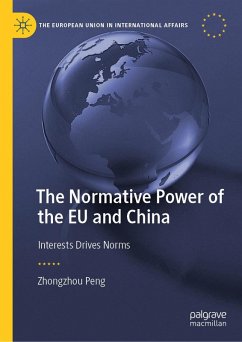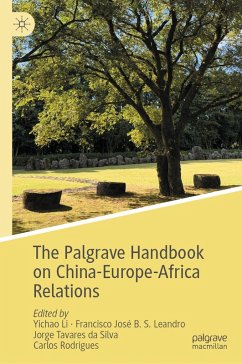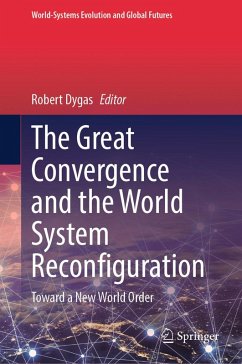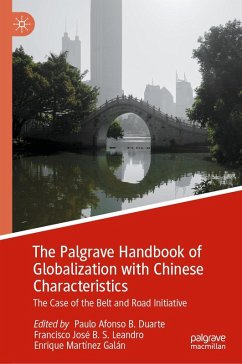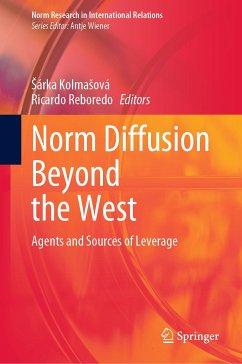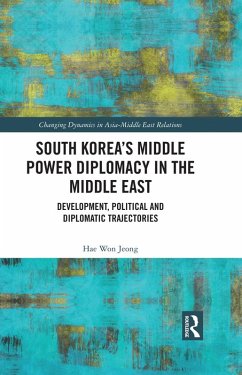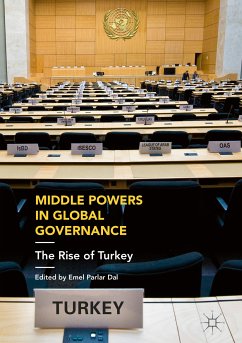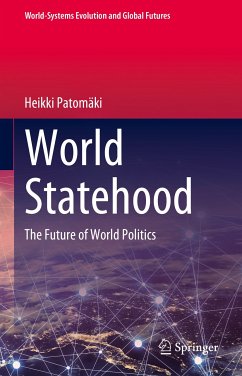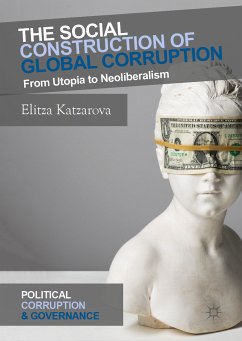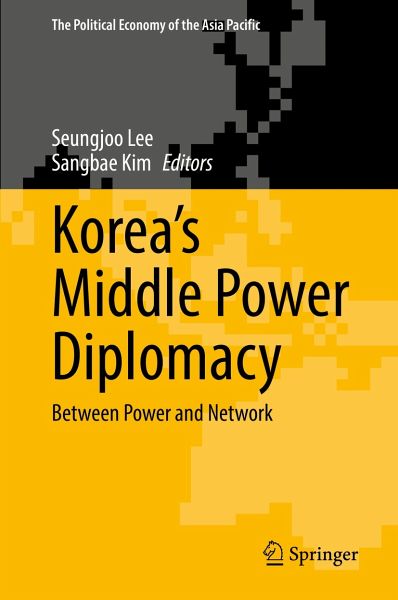
Korea's Middle Power Diplomacy (eBook, PDF)
Between Power and Network
Redaktion: Lee, Seungjoo; Kim, Sangbae
Versandkostenfrei!
Sofort per Download lieferbar
88,95 €
inkl. MwSt.
Weitere Ausgaben:

PAYBACK Punkte
44 °P sammeln!
This volume discusses Korea's role as a middle power in the midst of the 21st century global power shift. Focusing on Korea's middle power diplomacy from the perspective of coalition building, the book discusses structural factors that shape middle power strategy and diplomacy. Written by leading Korean researchers, the chapters use diverse methodologies to offer a range of perspectives on Korea's place in the developing global order. Topics discussed include South Korea's approach to technology policy in the midst of US-China cyber competition, the East Asian 'Thucydides Trap', MITKA and midd...
This volume discusses Korea's role as a middle power in the midst of the 21st century global power shift. Focusing on Korea's middle power diplomacy from the perspective of coalition building, the book discusses structural factors that shape middle power strategy and diplomacy. Written by leading Korean researchers, the chapters use diverse methodologies to offer a range of perspectives on Korea's place in the developing global order. Topics discussed include South Korea's approach to technology policy in the midst of US-China cyber competition, the East Asian 'Thucydides Trap', MITKA and middle power diplomacy, Korea's role in the South China Sea dispute, and South Korean cyber security. Providing a unique treatment of middle power opportunities and motivations in the East Asia region, this volume will be of interest to students and scholars of international relations, Asian politics, diplomacy, security studies, and global governance.
Dieser Download kann aus rechtlichen Gründen nur mit Rechnungsadresse in A, B, BG, CY, CZ, D, DK, EW, E, FIN, F, GR, HR, H, IRL, I, LT, L, LR, M, NL, PL, P, R, S, SLO, SK ausgeliefert werden.



